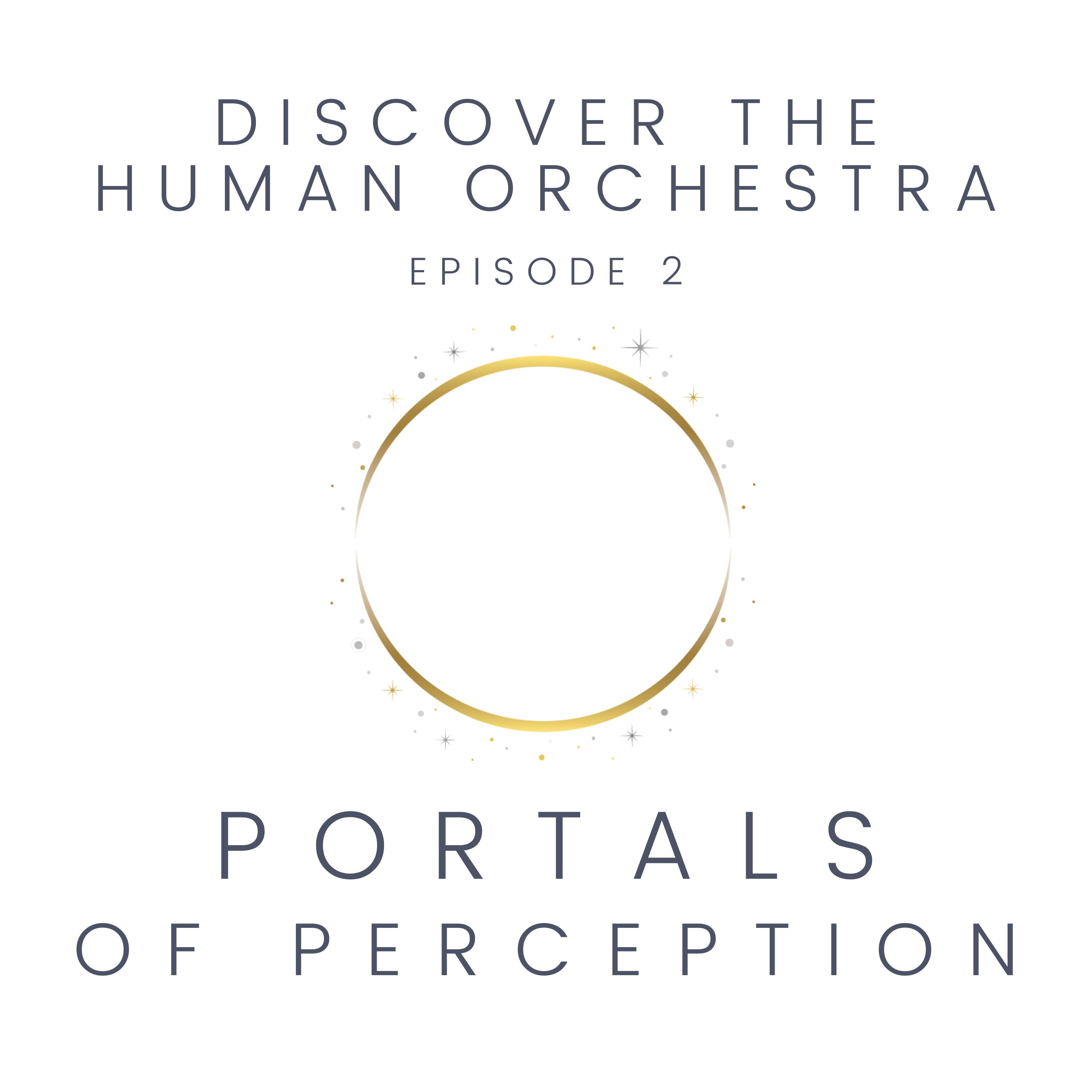002 - Discover the Human Orchestra with Rita Lampen, Patrick Summers, Kyriaki Nikandrou, Bernie Doyle, Aud Wilken, Don Giuliano and Mona Martin
- Author
- Aviv Shahar, Aud Wilken, Rita Lampen, Mona Martin, Don Giuliano, Patrick Summers, Bernie Doyle, Kyriaki Nikandrou
- Published
- Fri 15 Oct 2021
- Episode Link
- https://portalsofperception.simplecast.com/episodes/002-discover-the-human-orchestra-with-rita-lampen-patrick-summers-kyriaki-nikandrou-bernie-doyle-aud-wilken-don-giuliano-and-mona-martin-kET1IwIN
We see it among a group of people all the time: one person is shy while another person loves to be the center of attention. One person is intellectual while another person is more emotional. We see the nerdy, geeky types and we see the athletically proficient. But what we don’t always acknowledge is that we have all of these characters within us and, depending on many factors of our life thus far, some of them get more outplayed than others. So the artist, the caregiver, the friend, the parent, these are all part of the collective instrumentation of the human life and it’s possibilities. Join Aviv Shahar as he invites a panel of guests to explore this 4 - part series on the idea of discovering the human orchestra and the significance that we are not just one thing, but many things in one.
KEY TAKEAWAYS
02:16 – Aviv and introduces today’s panel of guests, Rita Lampen, Patrick Summers, Kyriaki Nikandrou, Bernie Doyle, Aud Wilken, Don Giuliano and Mona Martin
15:49 – Why the human spirit is not a solo instrument, but rather a full orchestra and why that is important
29:19 – The Double Whammy of the Human Orchestra
35:35 – The multifaceted nature of the Human Orchestra
47:28 – Other thoughts on the inroads being made around this concept of the Human Orchestra
1:01:02 – The music, the silence and being of service
1:19:38 – Aviv thanks the panel for joining the show
TWEETABLE QUOTES
“How does an orchestra play together? They have a conductor. So I started thinki ng, ‘What or who is conducting this orchestra of Patrick?’ At any given moment is there a conductor? Is there something or someone trying to bring order to all these different parts of me so that they can actually be coherent and make some kind of coherent noise.” (07:25) (Patrick)
“I think in the discovery process a human being really just needs to look at the different reactions that they have. You go through life and you have a reaction to something you see or you think a certain thing or you feel a certain way. And every single one of those pieces is something else, a part of you that has a response to the world around you.” (17:57) (Mona)
“Partly what I am searching for in this initial inquiry is the idea that when you begin to encompass and embrace the kind of thinking that you each offer from a different angle, you are each offering a pathway to transcend the myopic view of ‘I am one thing.’” (34:25) (Aviv)
“I’ve found life continuously presents a multiplicity of offers for me to choose. But it’s just this type of stirring conversation now that the empowering part of it is that you do not need to be stuck in what the world has turned you o ut to be.” (46:02)
“It’s a journey from choosing what you love to loving what you do.” (1:10:55)
RESOURCES MENTIONED
